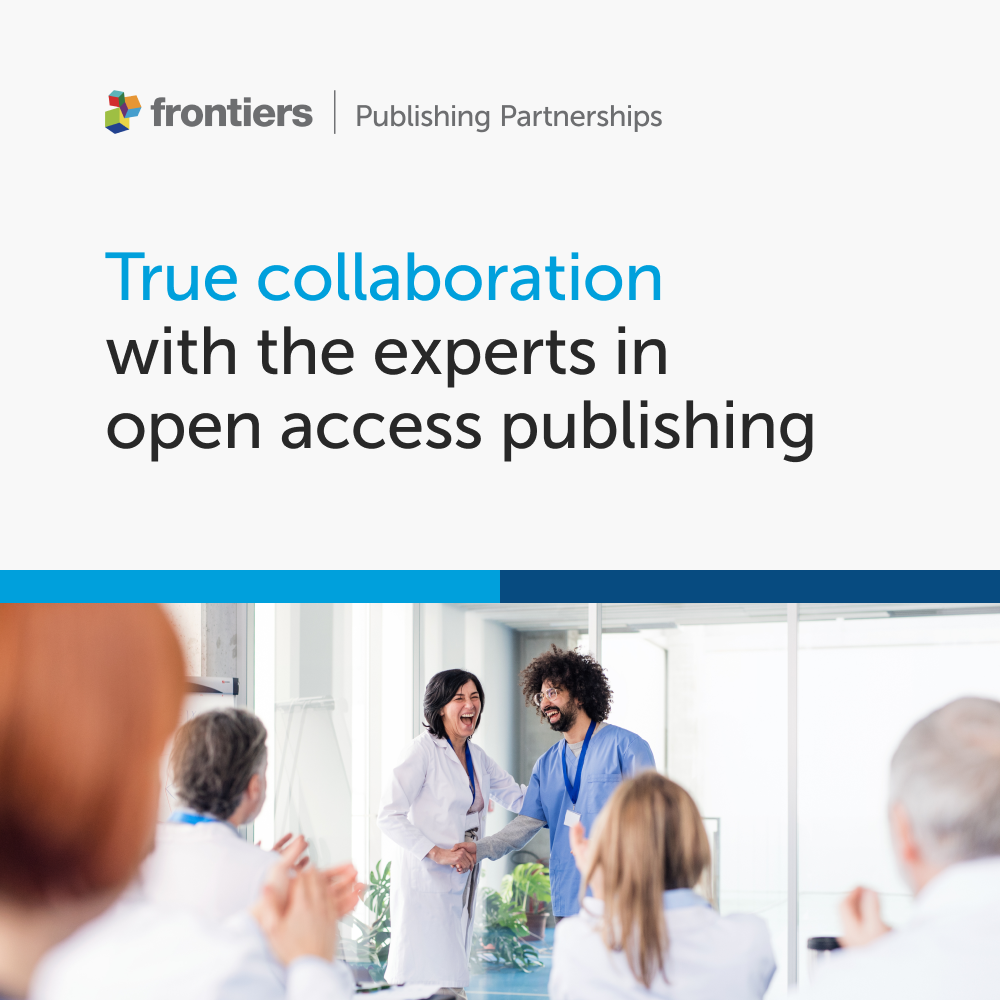Public Trust, Societies and Open Science
In the context of extreme global events, I find myself turning more and more to the possibilities of a collective response. Scientists have made enormous efforts in recent years for deeper and faster collaboration. And scientific research publication bears a profoundly important social responsibility. On both these fronts, society publishers are in the vanguard.The context for their efforts is stark. Too frequently, in an often poor-quality, binary public debate, public trust in the veracity of science, in its intentions and its cost, falls away. Political accountability grows weaker when we don’t have the science, the trade-offs, and the difficult choices in view.
At Frontiers, we want to help change that. We are a fully open access publisher. We want all science to be open. To us, global, existential threats call for scientific breakthroughs at pace, based on full and immediate access to the latest research.
Now the move to open access is underway across parts of the publishing industry, and I know the appetite for it is building. But in my view, the pace of change does not match the aspirations I sense in society publishers. As the campaign group cOAlition S itself points out, more than half of the two thousand transformative journals enrolled in the Plan S program have missed their annual targets in the move to full open access. Meanwhile two thirds of the world’s science remains behind a paywall.
Add to this the arrival of transformative agreements – "read and publish" or hybrid deals – which have in our view sown confusion and opacity, and of course, societies are looking hard for certainty and clarity. With a decision to publish open access – and the commitment to deeper and faster scientific collaboration – I believe they can find both. It is possible to find the right fit. It is possible to meet the appetite for open access while protecting, and growing, sustainable income.
At Frontiers, we offer a platform that is industry standard while also being open to a tailored approach to a society’s specific needs. We can extend the brand, dissemination, and financial future of societies. We support societies with guaranteed minimum incomes, when necessary. We are building partnerships and agreements with funding institutions across the world to broaden opportunities to society authors. And we work hard to be financially transparent with our partners, to share our evidence and expectations of sustainable profit. We believe the traditional subscription model leads to excessive costs. It is still the case that the average price of an article in a legacy journal is significantly higher than it is in open access journals.[1]
So, we need to realign expectations. And with flexibility, ambition, and focus, I think commercial and society publishers have an enormous opportunity to drive change that is both good for business, and good for society. As we face down global challenges, open access science can grow our chances of success. And it can help meet public appetite for accountability, transparency, and trust.
[1] It is not transformation
if nothing changes, 2022
(figure 2), Frontiers,
2022
About the Author
Robyn Mugridge
Robyn joined the Open Access publisher Frontiers in 2018. In
2019 she moved onto the role of publishing partnerships manager and established
the Publishing Partnerships department. Promoted to head of publishing partnerships
in 2022, her work now focuses on strategic collaborations with societies and
associations, supporting them as they engage with their communities and develop
their publications by transitioning to open access publishing models.
Twitter
Frontiers
Publishing Partnerships @FrontPartners
Frontiers @FrontiersIn
Robyn
Mugridge @MugsPubs
LinkedIn
Frontiers https://www.linkedin.com/company/frontiers/
Robyn Mugridge https://www.linkedin.com/in/robyn-mugridge-8a461b86/



No comments:
Post a Comment